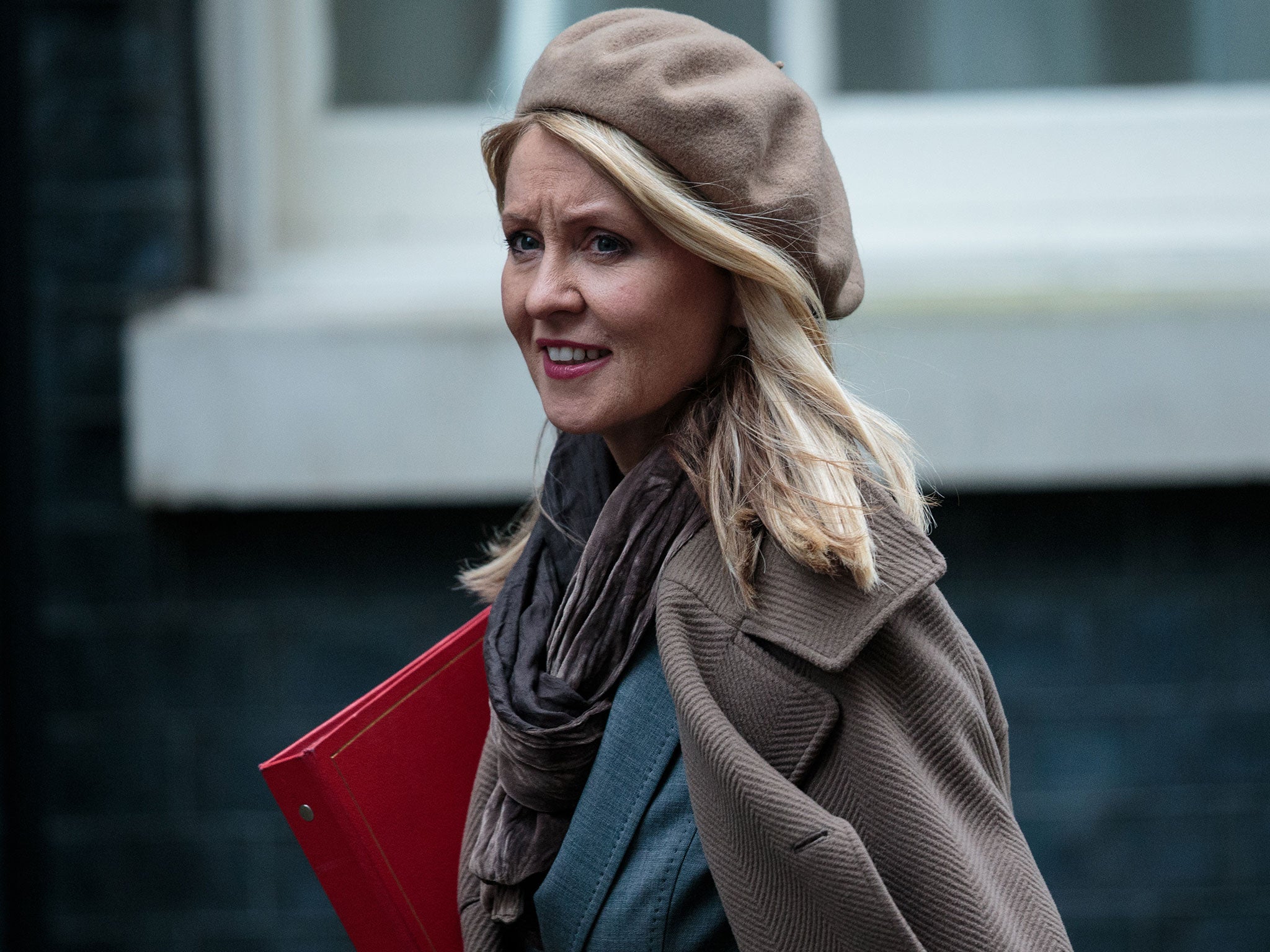Forcing rape survivors to discuss their ordeal to get benefits allows them 'opportunity to talk', claims Esther McVey
Work and pensions secretary facing calls to apologise after suggesting controversial new welfare policy will give survivors 'double support'

Forcing rape survivors to recount their ordeal in order to access benefits will give them an “opportunity to talk”, the work and pensions secretary has said.
Esther McVey claimed women who have a child as a result of rape would be helped by being made to speak to a charity worker or health professional because it means they could receive “double support”.
The minister prompted incredulity after making the claims during questioning by the Scottish Parliament’s Social Security Committee. Labour called on her to apologise for the comments.
Ms McVey was responding to a question about the government's so-called "rape clause", which means that, under the new universal credit system, parents will only receive additional benefits for their first two children.
A woman who has a third child as a result of rape will be handed an exception, but, under controversial plans widely condemned by women’s charities, will have to prove they were assaulted.
The Department for Work and Pensions has said women will not be questioned by government officials but instead will be referred to experts working for charities or within the health system.
Charities including Scottish Women's Aid and Rape Crisis Scotland have refused to ask as "referrers", however.
Appearing in front of members of the Scottish Parliament, Ms McVey was asked whether this had resulted in fewer rape survivors being granted additional benefits.
She said: “I do hope that some of those organisations don’t decide not to work with use because actually what we're doing is providing extra help and support to those people.
“We will continue working to make sure that the people who need that extra benefit will get it and maybe it will be through other organisations and an extra route.”
Ms McVey was asked whether she was "comfortable" that women will be forced to prove "non-consensual conception in order to access an entitlement".
She replied: “What we're doing is providing extra help where people have got more children that they couldn’t have planned, and we're providing that extra support.
“This could give them an opportunity to talk about something that's happened that maybe they've never had before, so it is potentially double support there: them getting the money they need and maybe [also] an outlet which they might possibly need."
Ms McVey said the policy was evidence of the “extra support the government has put in place for people who didn’t or weren’t able to make decisions over how many children they've had”, adding: “They have indeed got extra children, so more support will be put there and we've said we'll make allowances in those instances."
She confirmed rape survivors will not be quizzed by Department for Work and Pensions or Treasury staff but instead referred to "third party groups or health professionals or other suitable people who could help people”.
Labour called on Ms McVey to apologise for the comments.
Margaret Greenwood MP, the shadow work and pensions secretary, said: “Esther McVey has completely failed to address the very serious issue of woman being forced to reveal a profoundly traumatic experience to access a benefit.
“To suggest this might offer a woman ‘an outlet’ to discuss what has happened shows a lack of sensitivity and awareness of a woman’s feelings about such a violent and appalling crime.
“Forcing a burden of proof upon survivors of rape is morally wrong. Esther McVey should retract her comments and issue an apology.
“Labour will scrap the ‘rape clause’ and transform the social security system so it is there for all those who need it.”
A Department for Work and Pensions spokesperson said: “We’re ensuring women in these awful circumstances are supported in every way so they can receive the help that they need.
“We have always been clear that this policy will be delivered in the most effective, compassionate way, with the right exceptions and safeguards in place.”
Join our commenting forum
Join thought-provoking conversations, follow other Independent readers and see their replies
Comments
Bookmark popover
Removed from bookmarks